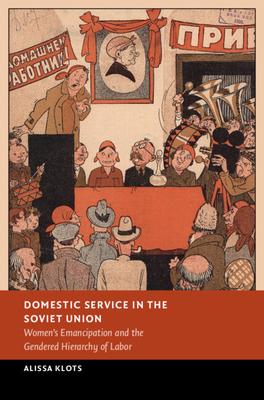This innovative study is the first to explore the evolution of domestic service in the Soviet Union, set against the background of changing discourses on women, labour, and socialist living. Even though domestic service conflicted with the Bolsheviks’ egalitarian message, the regime embraced paid domestic labor as a temporary solution to the problem of housework. Analyzing sources ranging from court cases to oral interviews, Alissa Klots demonstrates how the regime both facilitated and thwarted domestic workers’ efforts to reinvent themselves as equal members of Soviet society. Here, a desire to make maids and nannies equal participants in the building of socialism clashed with a gendered ideology where housework was women’s work. This book serves not only as a window into class and gender inequality under socialism, but as a vantage point to examine the power of state initiatives to improve the lives of household workers in the modern world.
| FindBook |
有 1 項符合
Domestic Service in the Soviet Union: Women’s Emancipation and the Gendered Hierarchy of Labor的圖書 |
 |
Domestic Service in the Soviet Union: Women’s Emancipation and the Gendered Hierarchy of Labor 作者:Klots 出版社:Cambridge University Press 出版日期:2024-05-02 語言:英文 規格:精裝 / 408頁 / 普通級/ 初版 |
| 圖書館借閱 |
| 國家圖書館 | 全國圖書書目資訊網 | 國立公共資訊圖書館 | 電子書服務平台 | MetaCat 跨館整合查詢 |
| 臺北市立圖書館 | 新北市立圖書館 | 基隆市公共圖書館 | 桃園市立圖書館 | 新竹縣公共圖書館 |
| 苗栗縣立圖書館 | 臺中市立圖書館 | 彰化縣公共圖書館 | 南投縣文化局 | 雲林縣公共圖書館 |
| 嘉義縣圖書館 | 臺南市立圖書館 | 高雄市立圖書館 | 屏東縣公共圖書館 | 宜蘭縣公共圖書館 |
| 花蓮縣文化局 | 臺東縣文化處 |
|
|
圖書介紹 - 資料來源:博客來 評分:
圖書名稱:Domestic Service in the Soviet Union: Women’s Emancipation and the Gendered Hierarchy of Labor
|











